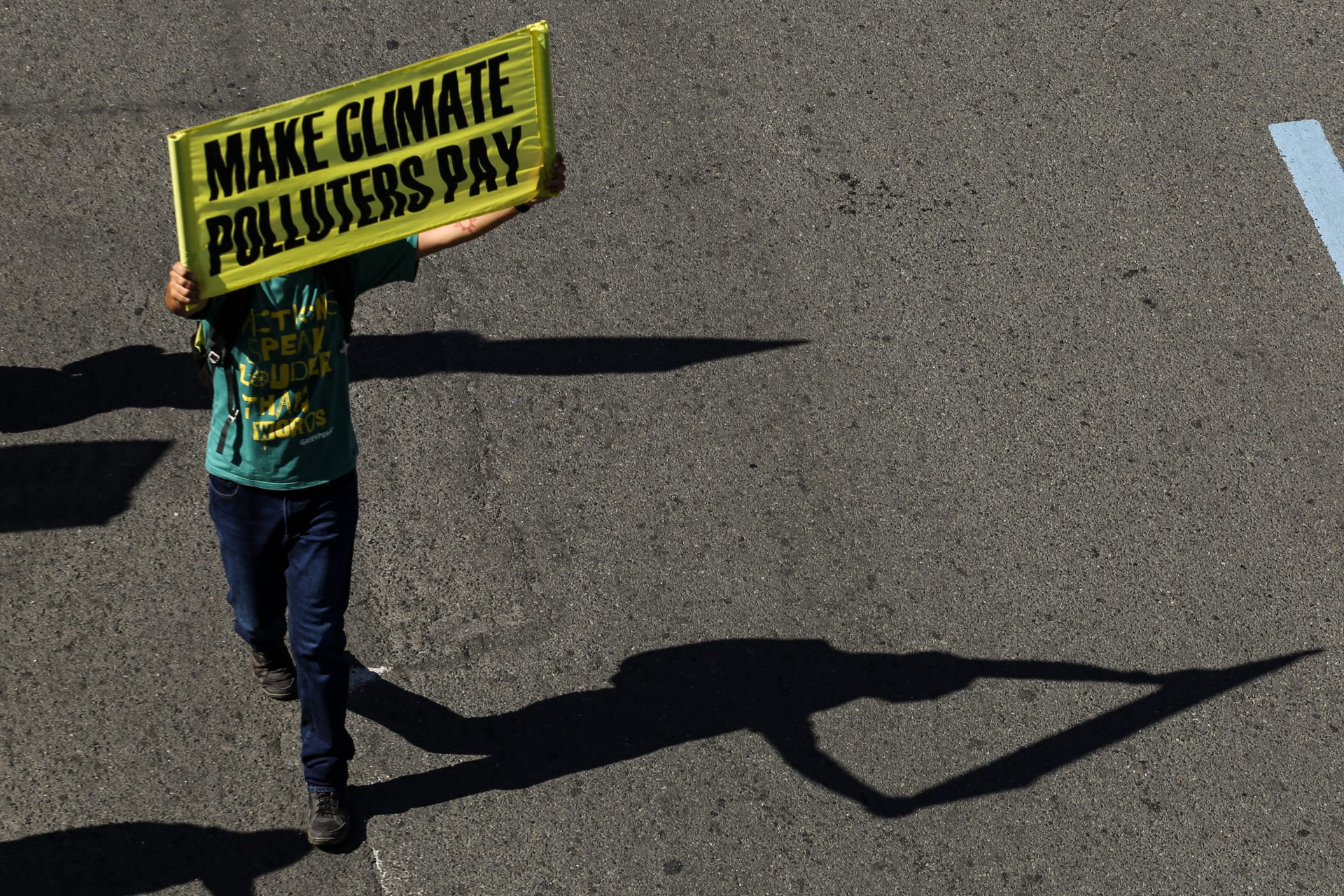How the year 2023 shaped climate and environmental action depends on who you ask. For some, it saw key decisions and the finalization of plans at the global and national scales that could accelerate solutions for decades to come. For others, it was another wasted 12 months with broken promises and false solutions.
Whatever the case may be, the turn of the calendar brings us closer to 2030, the supposed deadline for the attainment of many goals relevant to climate, environment, and development.
For the Philippines, there are several critical issues to which all stakeholders must pay close attention not only to avoid even worse impacts but also to redirect our path toward sustainable development.
El Niño-induced droughts
The Philippines is in the midst of potentially the strongest El Niño episode since 2015-16, which is enhanced by global warming. That period saw 85% of provinces get hit by droughts, causing tremendous socioeconomic losses across multiple sectors, especially in agriculture, and triggering numerous declarations of a state of calamity across multiple provinces.
The country is already feeling the impacts of this phenomenon; only 11 storms affecting the country this year so far, the fewest in 25 years. State officials are also anticipating that 77% of provinces will be in drought by May, with up to 80% reduction in rainfall in some areas.
With the agricultural sector already being the poorest in a nation that continue to seek more rice imports, food security is of utmost priority for at least the first half of 2024. For the past few months, the government has been preparing for the expected impacts of the El Niño.
Agencies led by the Department of Agriculture have been identifying critical areas for irrigation, capacity-building for more resilient farming techniques, and other technologies and activities to mitigate losses and damages. How these programs would be implemented would also affect different factors that would impact daily living, such as inflation, water supply, and electricity prices.
Loss and damage (L&D) funding
As one of the most vulnerable nations to the climate crisis, the Philippines has been seeking funding and developing mechanisms to provide support to victims of climate-related disasters. The past year saw it finding several opportunities to accomplish this.
One of the key outcomes from the recent Dubai climate negotiations (COP28) is the agreement to establish funding arrangements to address L&D, including a Board that would oversee its operations to be finalized by January.
The country recently secured a seat on the Board for at least the next three years, allowing it to influence who would receive support from the L&D Fund, and how fast they can access it. The government has also expressed its intent for the Philippines to host the Board to further strengthen its position.
At the domestic level, the Climate Accountability (CLIMA) Bill, which would establish a national L&D-related funding was filed at the House of Representatives, with backing from civil society groups.
It was the first proposed law filed worldwide that could set up such a mechanism, and enable the State to recognize corporate accountability for its role in worsening the climate crisis. It could also set a national framework for limiting the expansion of fossil fuel use and steering its development plans to be more aligned with the Paris Agreement.
With the impacts of the climate crisis projected to worsen in the next few years, it is important for the Philippine government to follow through with these developments on L&D. Specifically, it has to prove that it can have its global calls be consistent with its policies and actions at the national and local levels, especially on inclusive decision-making.
The CLIMA Bill needs to also be passed at both houses of Congress to further solidify this coherence across different scales of governance and bring highly vulnerable communities closer to achieving justice and much-needed support.
Just energy transition
Energy security has been highlighted as a major issue under the current administration. Several energy-related plans were in the process of being finalized towards the end of the year, specifically the new Philippine Energy Plan and the Nationally Determined Contribution (NDC) Implementation Plan.
While both plans have been consistent with the President’s emphasis on renewable energy (RE), gas, and nuclear power as the foundation of the country’s energy future, they have come under scrutiny by non-government sectors for both substantive and procedural reasons.
Several groups have pointed out the lack of actual drafts presented during the consultations and the lack of time allotted to these stakeholders supposedly being consulted to give proper feedback on these plans.
The debates also continue about what the Philippines’s future energy mix should be. Many civil society organizations and local communities still oppose both gas and nuclear, as they could hinder the development of RE which is not only essential for energy security and sustainable development but also for attaining the nation’s climate targets. Despite this, the government and its allies still intend to push for the expansion of these two energy sources moving forward.
The next 12 months would be vital for defining what constitutes a ‘just’ energy transition for the country. Policymakers, implementors, community representatives, and other stakeholders must collectively decide the best way forward to attain energy security, affordable electricity, climate action, and national development without compromising the well-being of relevant workforces, nearby communities, and ecosystems.
Such pathways must also account for the whole value chain of producing new energy facilities. How the government, especially the DENR, would facilitate the development of a ‘critical minerals strategy’ must also be closely monitored, considering potential impacts on indigenous peoples and other vulnerable groups and areas.
John Leo is the National Coordinator of Aksyon Klima Pilipinas and the Deputy Executive Director for Programs and Campaigns of Living Laudato Si’ Philippines. He is also a member of the Youth Advisory Group for Environmental and Climate Justice under the UNDP in Asia and the Pacific. He has been a climate and environment journalist since 2016.
